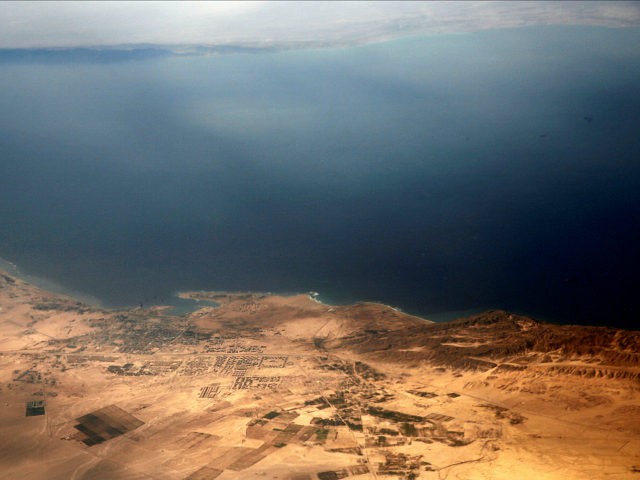A political crisis is brewing in Egypt, as the High Administrative Court (one of three bodies that effectively fills the role of Supreme Court in Egypt) shot down a plan by the administration of President Abdel Fattah al-Sisi to hand over a pair of disputed Red Sea islands to Saudi Arabia.
“The islands at the mouth of the Gulf of Aqaba control the narrow shipping lanes running north to the Red Sea port cities of Eilat and Aqaba, in Israel and Jordan,” the Associated Press reports. “The fate of the two islands has been at the heart of friction between Riyadh and Cairo over a string of regional issues, including Syria and Yemen.”
The BBC explains that President Sisi contends the islands of Tiran and Sanafir have always been Saudi possessions, but the Saudis asked Egypt to protect them in 1950.
This agreement of protection proved to be a mixed success, as Israel captured the islands during both of the ill-fated wars against it that Egypt joined, only to return control of them to Egypt afterward. Returning the islands to Saudi control has been taken as a sign of improving relations between the Saudis and Israelis since they were effectively given to Egypt as weapons to use against Israeli shipping. The small islands are occupied only by Egyptian troops and multi-national peacekeepers.
Opponents charge that Sisi’s desire to relinquish the islands to Saudi Arabia was an effort to repay the Saudis for their financial backing during and after Sisi’s overthrow of the Muslim Brotherhood government of Mohamed Morsi in 2013. There were sizable street protests across Egypt when the plan to transfer control of the islands was announced.
The legal effort to thwart the island transfer contended that Egypt signed a treaty with the Ottoman Empire (which is now Turkey) in 1906 that made the islands Egyptian territory. This treaty predates the establishment of the modern Kingdom of Saudi Arabia by over 25 years.
A lower court found that legal argument persuasive, and the High Administrative Court has now upheld the injunction. The BBC reports that the lawyer who spearheaded the injunction effort, former presidential candidate Khaled Ali, left the courtroom on the shoulders of his supporters Monday, to chants of “These islands are Egyptian!”
“The verdict is a message to el-Sissi: ‘Shame, shame on you!'” women’s rights activist Azza Suliman declared outside the courthouse, as reported by the Associated Press, while lawyer Malek Adly claimed the very “legitimacy of the regime is on the line.”
The AP found a group of activists outside the courthouse chanting, “Saudi Arabia, take your money back, for tomorrow, the Egyptian people will trample on you.”
Al-Ahram cites various reactions to the ruling from the Egyptian legislature — ranging from blunt assertions that parliament has the “final say” on the agreement, rather than the court, to others who said the government must accept the High Administrative Court ruling as final, or perhaps try one last-ditch appeal to the High Constitutional Court.
“The issue is not completely closed,” Chatham House associate fellow David Butter told CNN. “Whenever Egypt and Saudi Arabia have a meeting then the islands have been there at the top of the agenda. There’s not a crisis, but relations are chilly at the moment.”
Syria is one of the major reasons for that chilly relationship, with Egypt largely supporting dictator Bashar Assad, while the Saudis have supported the rebellion against him. Sensing an opportunity, the Iranians have been using this dispute to pry Egypt away from the Saudis — their rivals in the regional Sunni-Shiite struggle.
The Economist noted that money is a factor in the Egypt-Saudi rift as well, with the Saudis and other Gulf oil states wondering how Egypt “frittered away billions of dollars in aid,” offered at a time when the oil kingdoms are feeling the pinch of low crude prices. A few Gulf officials have gone overboard mocking Egypt and suffered career consequences.
Egypt, meanwhile, is nursing “wounded pride” over its economic difficulties, and some Egyptians resent Saudi Arabia for nourishing the radical Wahhabbi strain of Islam that inflames Egypt’s growing terrorism problem.
The AP notes that Egypt disregarded the lower court’s verdict and sent the islands deal to parliament in an “apparent attempt to mend ties” after Saudi Arabia cut off Egyptian fuel shipments, angry that Cairo had backed a U.N. resolution on Syria opposed by Riyadh.

COMMENTS
Please let us know if you're having issues with commenting.